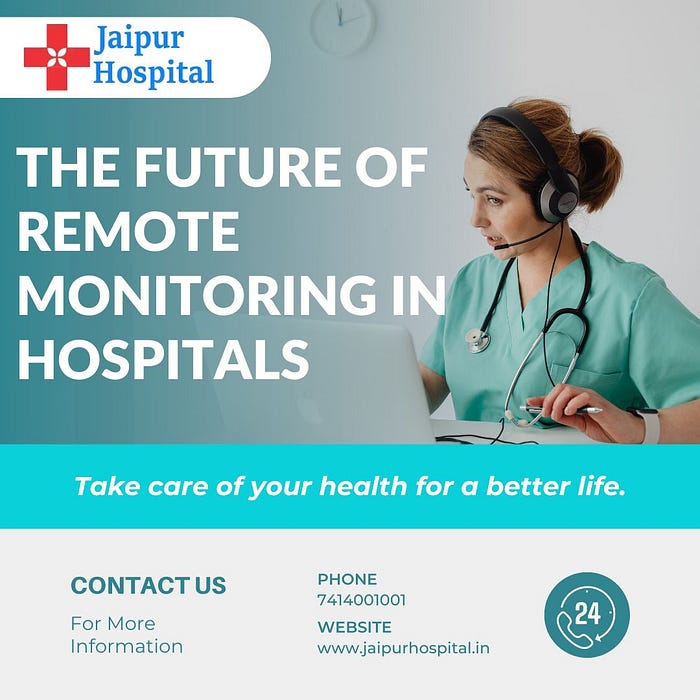
The landscape of healthcare is undergoing a dramatic transformation, driven largely by advancements in technology. Remote monitoring, in particular, is poised to revolutionize the way hospitals manage patient care, making it more efficient, personalized, and proactive. Here’s a closer look at how remote monitoring is shaping the future of hospitals and what we can expect in the coming years.
1. Enhanced Patient Monitoring
Remote monitoring technology enables healthcare providers to keep a close eye on patients without requiring them to be physically present in the hospital. Wearable devices and mobile health apps can track vital signs such as heart rate, blood pressure, glucose levels, and oxygen saturation. This continuous data collection allows for real-time monitoring of a patient’s health, which can lead to early detection of potential issues and prompt interventions.
2. Improved Chronic Disease Management
For patients with chronic conditions such as diabetes, hypertension, or heart disease, remote monitoring offers a significant advantage. By regularly monitoring their health data from home, patients can receive timely alerts and adjustments to their treatment plans. This proactive approach helps manage chronic diseases more effectively and reduces the need for frequent hospital visits.
3. Reduced Hospital Readmissions
One of the key benefits of remote monitoring is its potential to reduce hospital readmissions. By keeping track of patients’ health metrics remotely, healthcare providers can identify problems before they escalate and address them promptly. This can prevent complications that might otherwise lead to readmission, thereby improving patient outcomes and reducing healthcare costs.
4. Personalized Care
Remote monitoring allows for a more personalized approach to healthcare. By analyzing the data collected from remote devices, healthcare providers can tailor treatments and interventions to individual patients’ needs. This customization enhances the effectiveness of care and ensures that each patient receives the most appropriate and targeted treatment.
5. Streamlined Workflow for Healthcare Providers
For hospitals, remote monitoring systems can streamline workflows by automating data collection and alerting providers to critical changes in a patient’s condition. This reduces the time spent on manual data entry and enables healthcare professionals to focus on providing high-quality care. For example, a best hospital in Jaipur might implement advanced remote monitoring systems to enhance the efficiency of their services.
6. Increased Access to Care
Remote monitoring can significantly improve access to healthcare, especially for patients in remote or underserved areas. With the ability to monitor patients from a distance, healthcare providers can extend their reach and offer care to those who might otherwise face barriers to accessing medical services. This increased accessibility can be particularly beneficial in managing specialized care, such as that provided by an orthopedic hospital in Jaipur, where patients can receive expert guidance without having to travel long distances.
7. Future Innovations
As technology continues to advance, the future of remote monitoring in hospitals looks promising. Innovations such as artificial intelligence (AI) and machine learning are expected to further enhance remote monitoring capabilities. AI can analyze large volumes of health data to identify patterns and predict potential health issues, while machine learning algorithms can improve the accuracy of diagnostic tools and treatment recommendations.
8. Challenges and Considerations
While remote monitoring offers numerous benefits, there are also challenges to consider. Issues such as data privacy, cybersecurity, and the need for reliable internet connections are important factors that need to be addressed. Ensuring that remote monitoring systems comply with regulatory standards and protecting patient information will be crucial for the successful implementation of these technologies.
Conclusion
The future of remote monitoring in hospitals promises to transform healthcare delivery by making it more efficient, personalized, and accessible. With advancements in technology, remote monitoring is set to enhance patient care, improve chronic disease management, and reduce hospital readmissions. As hospitals continue to embrace these innovations, the quality of healthcare will undoubtedly improve, leading to better outcomes for patients and a more streamlined healthcare system.